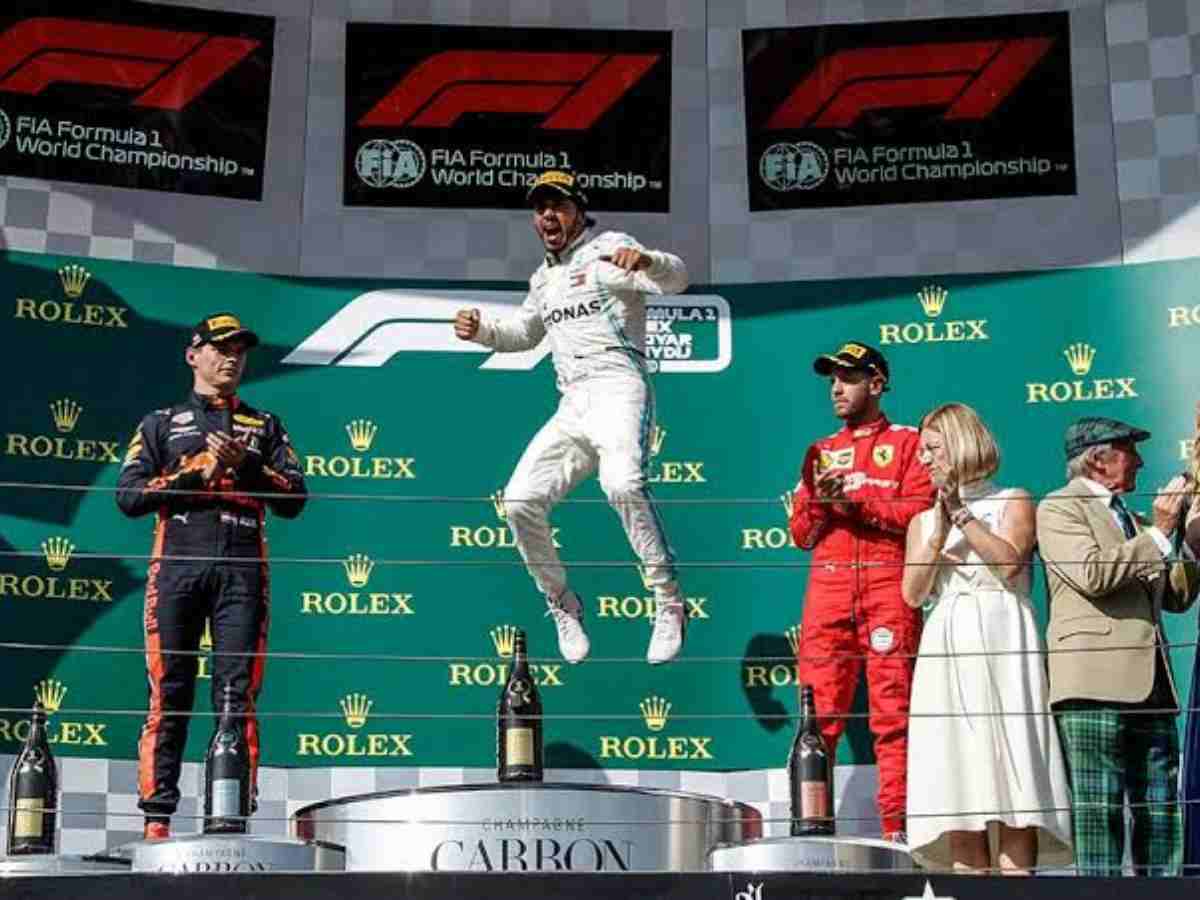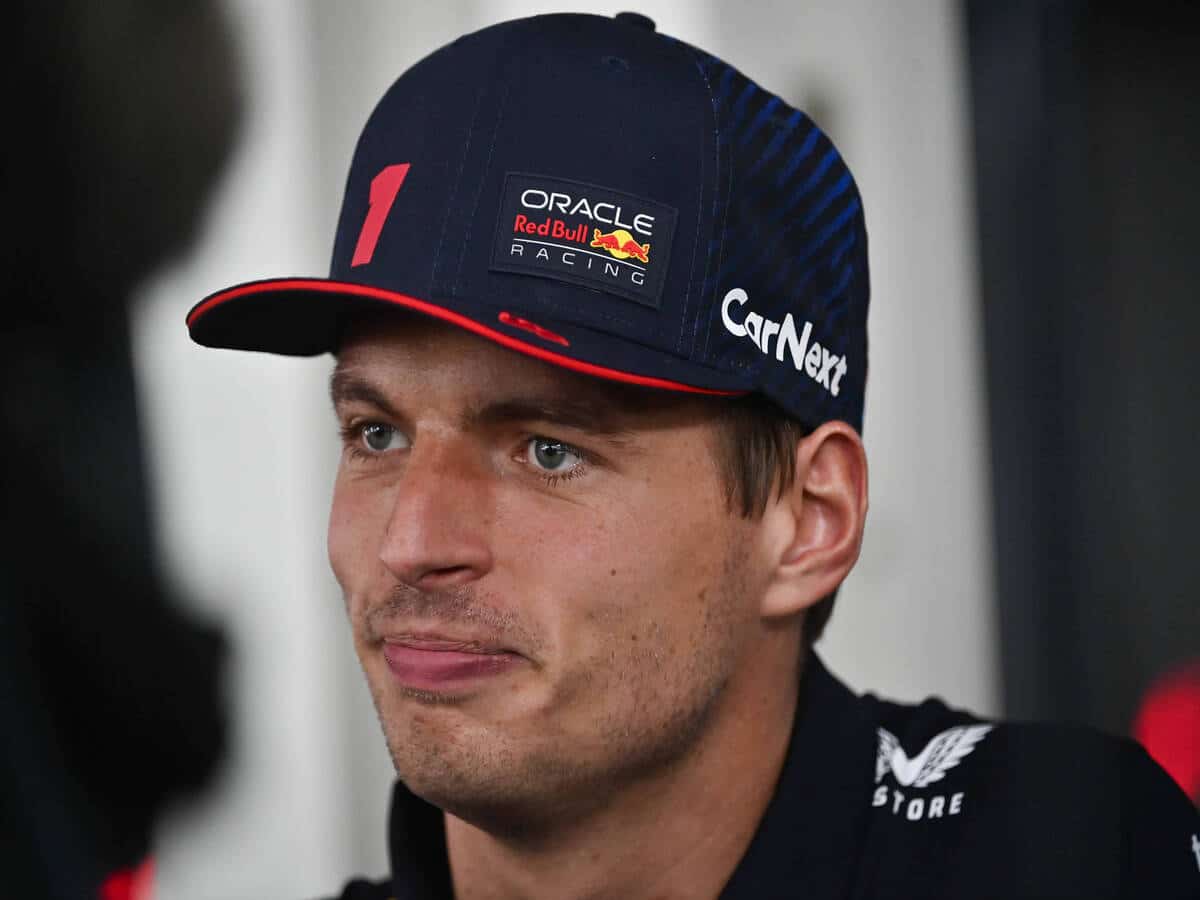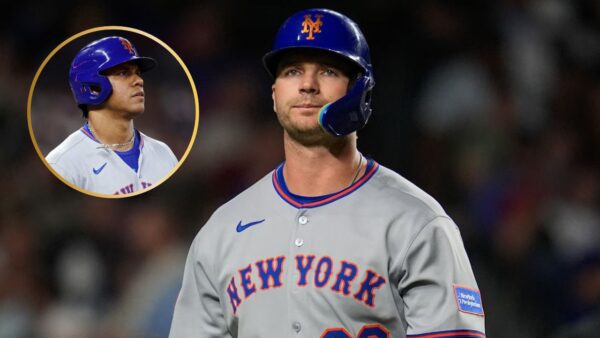What is a Grand Slam in Formula One?
Grand Slam is a Formula 1 title conferred upon those dominant racers who get pole position, race win by leading every lap as well as the fastest lap.

🔍 Explore this post with:
Grand Slam is a term that is often tossed around during a conversation that involves tennis. It is well-known to all the sports enthusiasts that stalwarts in the tennis field such as Novak Djokovic, Roger Federer, Rafael Nadal, have all achieved multiple Grand Slams during their careers. But this phrase is now applied to Formula One as well, and Jim Clark is touted as the racer with the most Grand Slam wins. But it is often baffling to the motorsports fans to hear about ‘Grand Slam’. So, FirstSportz will dissect its meaning from the F1 perspective and also give other details.
In Formula 1, a typical race weekend mostly sees racers go for two free practice sessions (FP1 and FP2) on Friday, and then they are allowed to record their lap times once more on Saturday at the FP3 session right ahead of Qualifying. The Quali decides the positions of the twenty racers on the starting grid for the Main Race, which takes place on Sunday. The winner of the Qualifying is known as the ‘pole-sitter’ as he is slated to start the race from the topmost position in the pack. And during the Main Race, the winner gets the maximum points while there is also a point in store for the racer who records the fastest lap time.
On some occasions, a single driver might manage to attain a pole position at the Qualifying followed by a win at the Main Race where he has led every lap and has also recorded the fastest lap in the race. This is when he is called a ‘Grand Slam’ winner.
How many points does a Grand Slam winner achieve from one race weekend?
The Grand Slam in Formula 1 is a special title for the racer who obtains a Quali pole, records the fastest lap at the Main Race, and also wins the GP by leading every single lap. This level of dominance in the circuit can only be seen on special occasions when both the driver as well as his car give stellar performance.

Going by the traditional points system followed by Formula 1, there are no points for the racer who gets pole position at the Qualifying. But the race winner at the Main Race gets a whopping 25 Championship points to his name. And if any one of the top 10 drivers records the fastest lap in the race, he gets another 1 point. Thus, a Grand Slam winner can get a total of 26 points from a single race weekend.
Who are the notable Grand Slam winners in Formula 1?
Winning the Grand Slam at a Formula 1 race is a job easier said than done since the racer needs to outshine all of his heavyweight rivals throughout the race weekend. He must achieve a pole position at the Quali and then convert that to a race win by leading every single lap in the race. Naturally, this is more achievable at the tracks which allow for less overtaking.
Till now, only three racers have managed to get two back-to-back Grand Slams in Formula 1. They are Alberto Ascari, Jim Clark, and Sebastian Vettel. The current grid has 4 racers who have already achieved one or more Grand Slams–Lewis Hamilton, Max Verstappen, Fernando Alonso and Charles Leclerc.
Frequently Asked Questions
What is a Grand Slam in Formula 1?
It is a title given to the driver who wins pole position during the Qualifying, leads every lap at the Main Race, sets the fastest lap, and also emerges as the Grand Prix Champion.
How is a Grand Slam different from an F1 Hat-trick?
A racer has to get pole position, set the fastest lap, and also win the race by leading every single lap for a Grand Slam. But for achieving an F1 hat-trick, he only has to get pole position, set the fastest lap, and win the race.
Who has won the most Grand Slams in F1?
Two-time F1 Champion Jim Clark is regarded as the driver with the maximum number of F1 Grand Slams.
In case you missed it:







